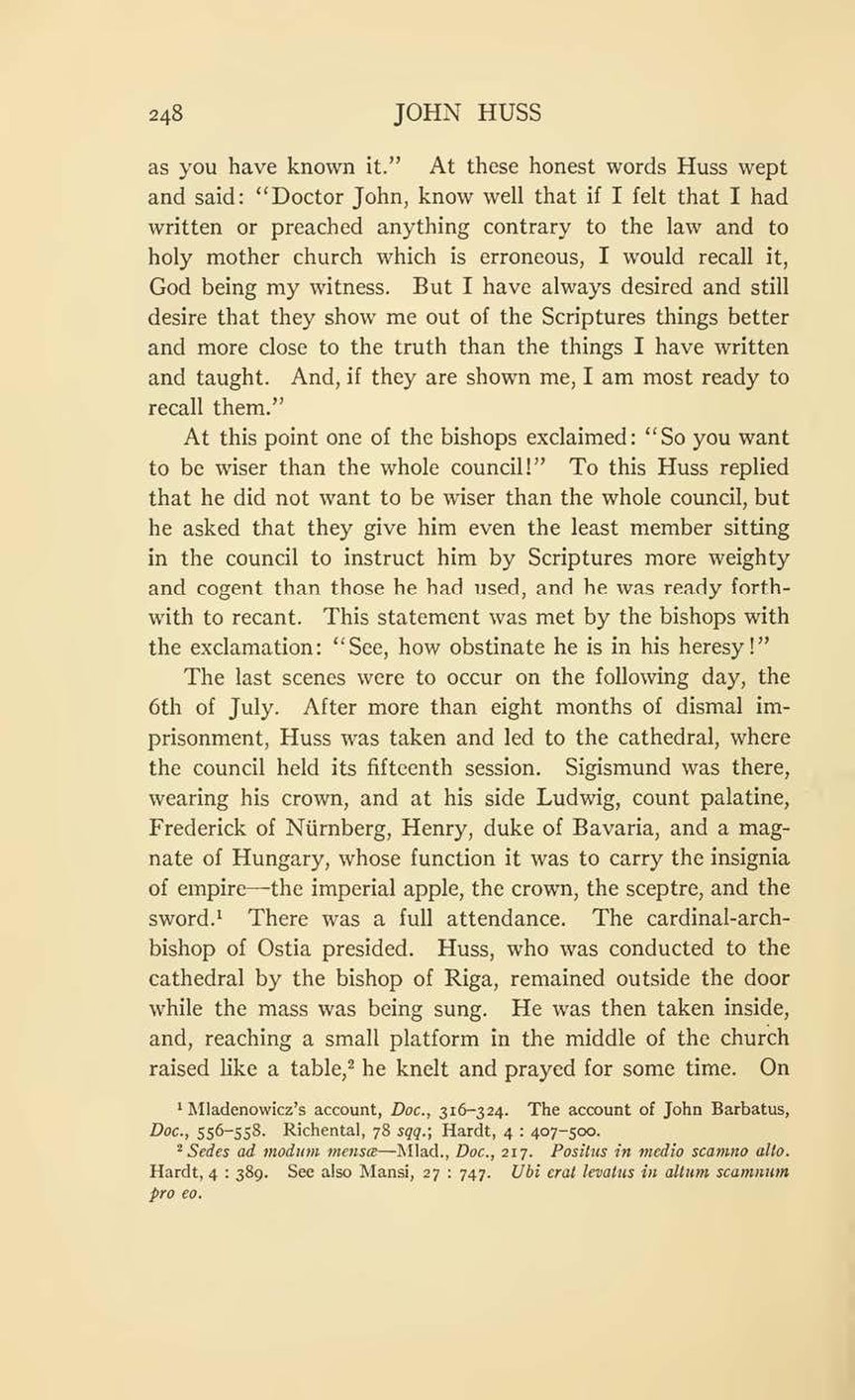as you have known it.” At these honest words Huss wept and said: “Doctor John, know well that if I felt that I had written or preached anything contrary to the law and to holy mother church which erroneous, I would recall it, God being my witness. But I have always desired and still desire that they show me out of the Scriptures things better and more close to the truth than the things I have written and taught. And, if they are shown me, I am most ready to recall them.”
At this point one of the bishops exclaimed: “So you want to be wiser than the whole council!” To this Huss replied that he did not want to be wiser than the whole council, but he asked that they give him even the least member sitting in the council to instruct him by Scriptures more weighty and cogent than those he had used, and he was ready forthwith to recant. This statement was met by the bishops with the exclamation: “See, how obstinate he is in his heresy!”
The last scenes were to occur on the following day, the 6th of July. After more than eight months of dismal imprisonment, Huss was taken and led to the cathedral, where the council held its fifteenth session. Sigismund was there, wearing his crown, and at his side Ludwig, count palatine, Frederick of Nürnberg, Henry, duke of Bavaria, and a magnate of Hungary, whose function it was to carry the insignia of empire—the imperial apple, the crown, the sceptre, and the sword.[1] There was a full attendance. The cardinal-archbishop of Ostia presided. Huss, who was conducted to the cathedral by the bishop of Riga, remained outside the door while the mass was being sung. He was then taken inside, and, reaching a small platform in the middle of the church raised like a table,[2] he knelt and prayed for some time. On
